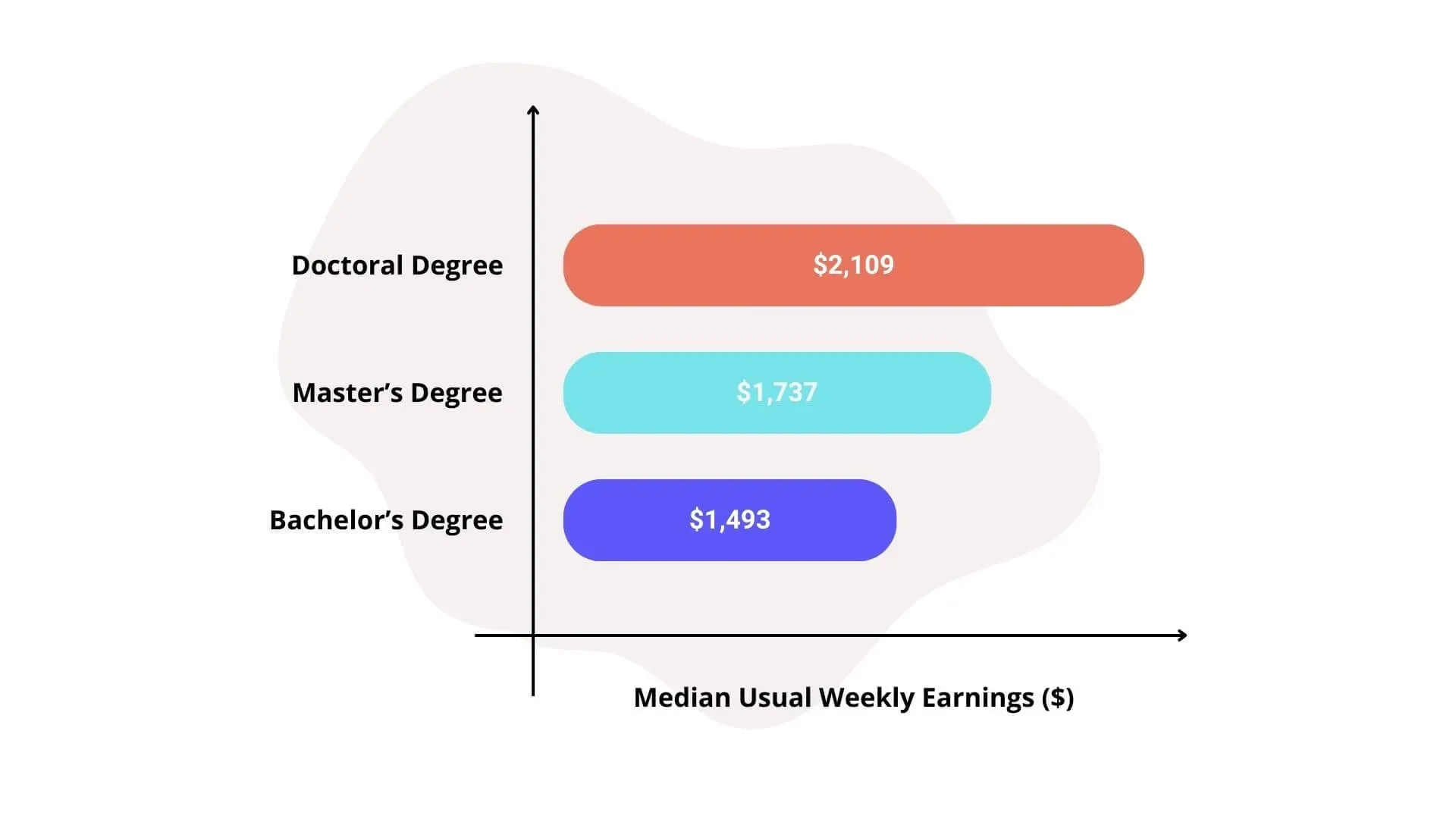Is it worth shelling out the extra time and money to go to grad school? The answer depends on your career goals and intended field of study.
The difference between undergraduate and graduate school basically boils down to career prospects: certain professions require a graduate degree, while you can work in other fields with just a bachelor’s.
As a survivor of academia, I can tell you that the daily grind of attending lectures and studying for exams can be stressful— graduate school isn’t for everyone. But if you have a particular goal in mind, like attending medical school, you’ll be rewarded for your hard work.

There’s a notable salary difference between undergraduate and graduate salaries. According to the U.S. Bureau of Labor Statistics, the median weekly earnings for those with bachelor’s degrees are $1,493. For those with a master’s degree, the average weekly earnings are $1,737.
Considering that wage gap, it’s worthwhile to take some time and decide on a tentative plan for your future. That way, you won’t waste time or money on a degree you don’t actually need. Read through the pros and cons of a graduate and undergraduate degree to see what’s the better fit for you.
Create Your Free Profile to Apply for College Scholarships Today!
Consider these questions to determine your best fit:
- Career Goals: What are your long-term career aspirations? Some professions require advanced degrees. The typical graduate student has a specific profession in mind.
- Interest in Specialization: Are you passionate about diving deep into a specific field?
- Time and Financial Investment: Can you commit to the time and cost associated with graduate programs?

As a college student, you probably either have a clear goal in mind, such as a specific profession you want to pursue, or you’re undecided. For those of you with clear goals, the answer’s easy— if your profession requires an advanced degree, grad school is the right answer.
If you’re undecided, that’s fine too. Keep your options open by attaining an undergraduate degree that leaves room for graduate studies. For example, a general degree like a bachelor’s in Psychology gives you several career paths: counseling, advertising, market research, human resources, and more.
A degree like Psychology is also easy to build on in graduate school, as you could pursue clinical aspirations with a PhD or other advanced degree, allowing you to work in the medical field.
An undergraduate degree can be expensive. Create your Bold profile today to start applying for scholarships today! Find hundreds of scholarships you’re eligible for, all in one place.

Undergraduate Education
Admission Requirements for an Undergraduate Program
To pursue an undergraduate degree, prospective students need to meet specific admission requirements. These criteria ensure that students are adequately prepared for the rigors of undergraduate studies.
High School Graduation Requirements
A high school diploma is the fundamental prerequisite for most undergraduate programs. High school coursework should ideally include a balanced mix of subjects:
- English: 4 years
- Mathematics: 3-4 years
- Science: 3 years
- Social Studies: 3 years
- Foreign Language: 2-3 years
These courses build a solid foundation in essential academic skills and knowledge areas.
Standardized Tests (SAT/ACT)
Standardized tests like the SAT or ACT are commonly required for aspiring undergraduate students. These tests assess a student’s readiness for college-level work:
- SAT: Measures proficiency in critical reading, mathematics, and writing. The test is scored on a scale of 400 to 1600.
- ACT: Covers English, mathematics, reading, science reasoning, and an optional writing section. Scored on a scale from 1 to 36.
There are many financial aid opportunities available for those pursuing an undergraduate degree. Check out this list of scholarships for undergraduate students and apply to any you’re eligible for.
Career Opportunities with an Undergraduate Degree
Undergraduate programs equip students with essential transferable skills that are highly valued by employers across various sectors. These skills include:
- Critical Thinking and Problem-Solving
- Communication Skills
- Teamwork and Collaboration
- Time Management
A degree in computer science can lead to roles such as software developer or IT consultant, while a psychology major might find opportunities in human res